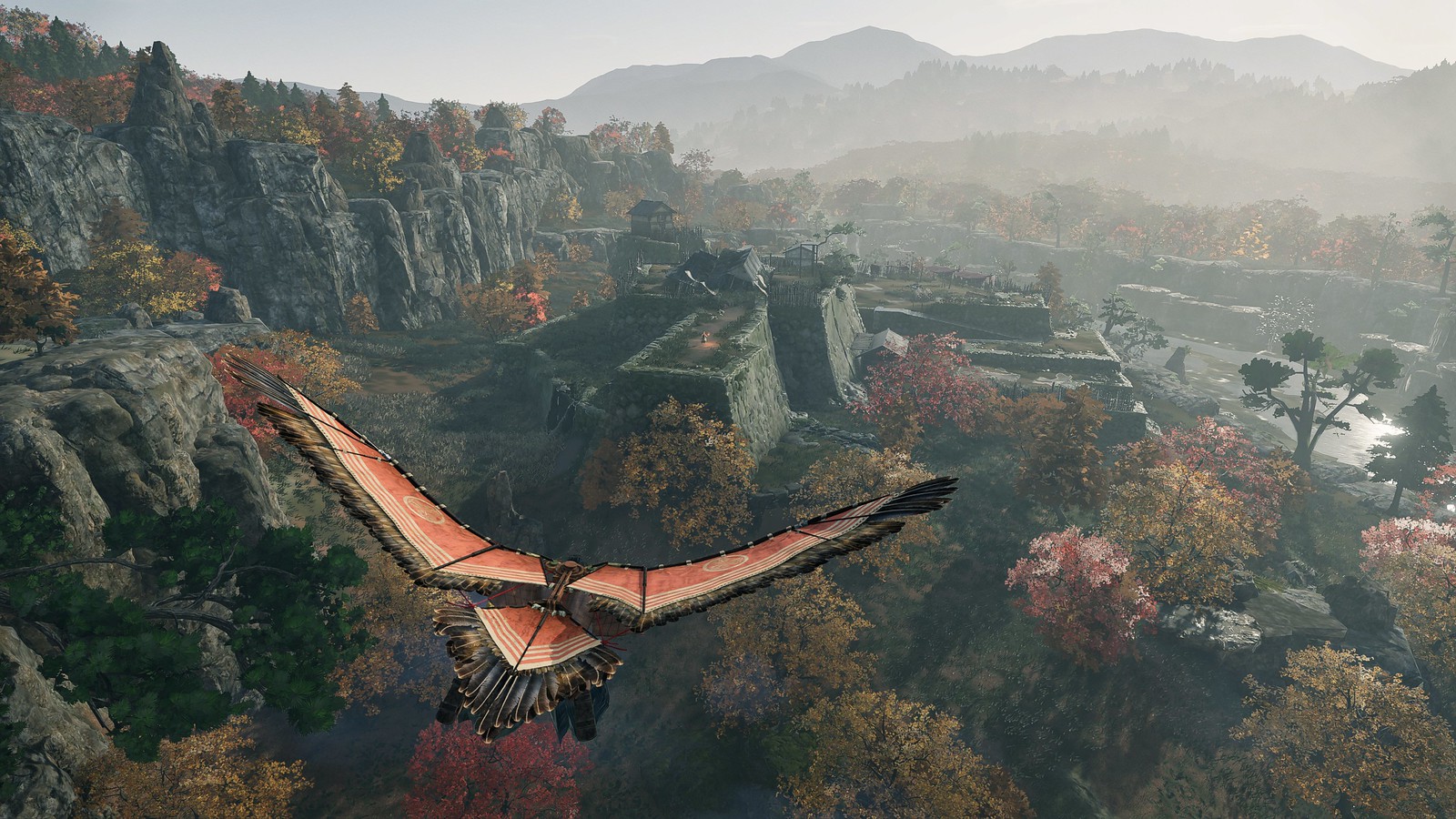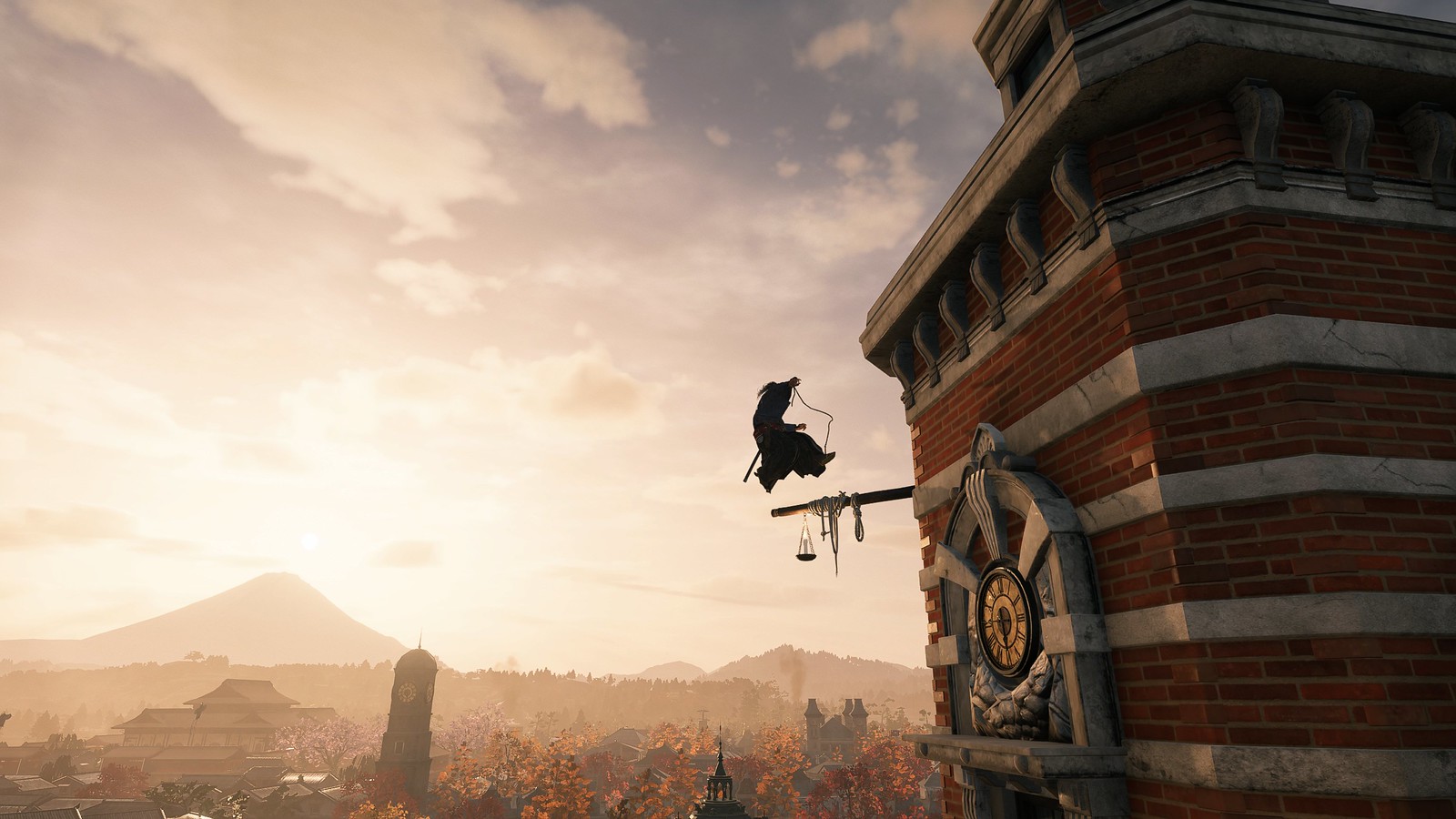Team Ninja has become synonymous with best-in-class action gameplay. From Ninja Gaiden to Nioh 2, the fundamental act of swinging a sword or spear (or any number of deadly weapons) is reliably complex and satisfying, often with a challenging-yet-rewarding learning curve.
That Rise of the Ronin carries on this tradition is hardly a surprise—but, their latest work on PlayStation 5 offers so much more than satisfying combat. Team Ninja jumped katana-first into the crowded open-world space, and delivers something uniquely compelling.
I had a chance to play the game’s opening hours, and am excited to share details about the eclectic sights, sounds, combat, and traversal of Bakumatsu-era Yokohama.
A whole new world
After finishing the linear prologue, the events of which I won’t spoil here, I soon found myself thrust into the game’s vast open world—a first for Team Ninja. Armed with a katana, Western-style saber, musket, and trusty steed, I took the long route to Yokohama, scouring the countryside for crafting materials, climbing rooftops to pet cats (one of the game’s hidden collectibles), and freeing villages from the clutches of bloodthirsty bandits. Rise of the Ronin does a fantastic job of always keeping something curious in view—finish one side activity, and there’s usually another just out of reach to catch your eye.
Of course, the bustling port city of Yokohama is the centerpiece of this open-world environment (and, later, Edo and Kyoto), and it’s here that the game fully comes into its own. Yokohama in the late 19th century is caught between worlds, having recently been subject to American “gunboat diplomacy.” This is evident in the city’s eclectic mix of influences: guns and swords; top hats and kimono; and a fascinating tapestry of traditional Japanese dwellings and imposing brick structures.
The upshot is that this place is dense with opportunities to explore, and Team Ninja gives the player several tools to take advantage of the city’s verticality. Climbing up (or using a grappling hook) to scale buildings, and then using your prototype glider to soar across the rooftops, is a breeze. Rise of the Ronin drew me in for its uniquely textured world as much as the game’s razor-sharp combat.
I also acquired lodging in the city, where I was able to not only hang out, chat, and give gifts to visiting companions, but also rearrange furniture, customize my ronin’s appearance, and freely reset skill points.
Parry and riposte

For those familiar with Team Ninja’s recent run of modern action classics, Rise of the Ronin places a much greater emphasis on the duel itself. The game achieves this by prioritizing parries, called Countersparks, that drain your enemy’s Ki (stamina), which in turn makes them vulnerable to gruesome critical hits. Optimal play seems to emphasize staying within striking distance and timing your opponents’ attacks to counter, rather than the attack-and-dodge routine typical in games of this type. The combination of metal-on-metal clangs and bright sparks flying gives these duels a very cinematic feel—as does the speed with which you can slay your foes following successful Countersparks. Critical hits are varied and brutal, replete with detached limbs and massive blood sprays, making Counterpsarks worth the significant risk to pull off.
Some additional gameplay details that stuck out to me:
● Gruesome stealth kills and critical hits will terrify your opponents’ companions, thus lowering their Ki and making them easier to dispatch. In a similar way, slaying the more resilient enemy leaders first will lower the Ki of their weaker henchmen.
● The grappling hook can be used to hurl explosive barrels and other hazards into your opponents, as well as pull archers down from irritating vantage points (among other uses).
● Parrying incoming bullets sets your sword aflame, giving your attacks a temporary damage boost.
● Rise of the Ronin affords the player a ton of flexibility in how they approach combat encounters, whether you want to whittle down the horde by landing headshots from afar, or first prey on vulnerable sentries with stealth strikes. You can even carry out surprise attacks while gliding overhead.
● On certain missions, you’re able to bring along companions with whom you’ve established Bonds. While they will of course attack on their own, you can also take control of these other characters as you wish.
I also got to experience two of the game’s Combat Styles, movesets for each weapon that unlock and evolve as you progress through the game (and there appear to be dozens to discover). Each Combat Style holds advantages and disadvantages against certain weapons, and you can swap them on the fly to give you a leg up against your foes.
Finally, it’s worth noting that the game’s strength, dexterity, intelligence, and skill trees can also unlock new dialogue options. In one instance, I was able to intimidate a group of pesky officials before initiating a brawl, consequently lowering their Ki gauges at the start of the fight.
Flight of the Ronin

My time with Rise of the Ronin concluded with an aerial base infiltration, gliding through the air with three companions to take on a boss and retrieve inventor Igashichi Iizuka’s rudimentary camera. This climactic mission challenged me to use all the tools at my disposal, flinging environmental hazards and picking off enemies at range before facing off in a duel against a club-wielding brute. But before putting the controller down, standing among the bloody wreckage of my first major battle, I took a moment to pet a stray cat.
This is just a slice of the adventure players can unsheathe in Rise of the Ronin when it hits PS5 on March 22, 2024.
Go to Source
Author: James Stavrinides




